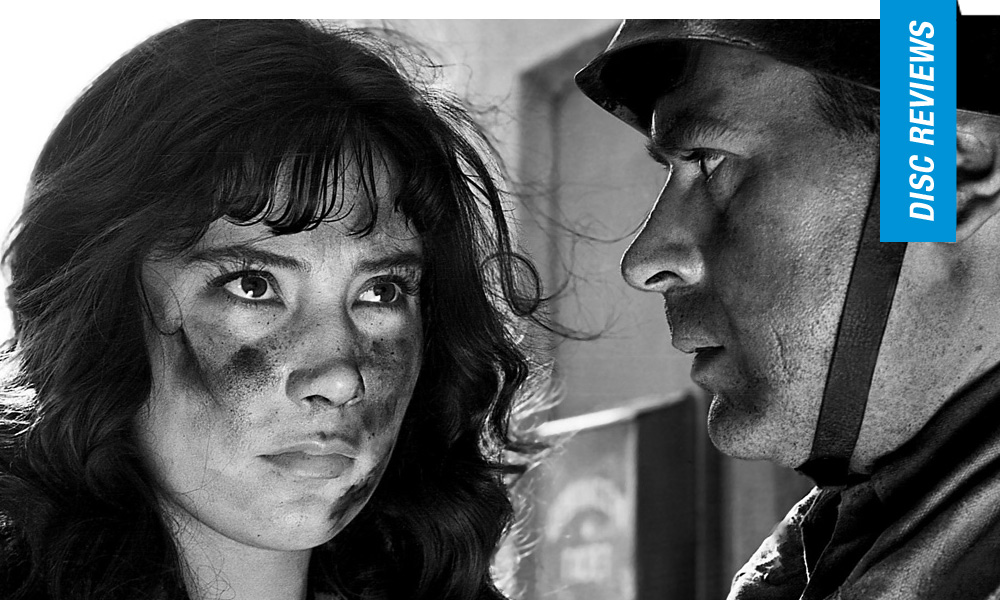Based on a play by Victor Rozov, The Cranes Are Flying centers on Veronika (Tatyana Somoilova), who has just begun a passionate romance with Boris (Aleksey Batalov). But when WWII breaks out, Boris volunteers for the frontlines. During the German blitzkrieg, Veronika’s apartment is demolished and her parents with it. Trouble arrives when these circumstances force her to live with Fyodor Ivanovich (Vasili Merkuryev), Boris’ father, in an apartment which also includes his mother, sister and cousin Mark (Aleksandr Shvorin), who is medically unable to serve and is enamored with Veronika.
During another attack on the city, she’s left alone with him in the apartment, a situation he takes advantage of, raping Veronika, who is then shamed into marrying him. But the rest of the family is unaware of the transgression, believing she has betrayed Boris. When the family is relocated to the eastern side of the country, Veronika works in a military hospital, eventually learning Boris was killed, and finally resolves to abandon her unhappy marriage to Mark, a man with significant secrets eventually revealed to the family.
Although the narrative of The Cranes Are Flying may be the simplest of Kalatozov’s collaborations with Urusevsky, it is arguably the most potently emotional. Urusevsky’s frames challenge not only the rigid propaganda of previous Soviet cinema but the possibilities of collapsing characters’ emotions into a visual language. Filled with sequences which exemplify the interiority of Veronika’s anguish, guilt and anxiety, this culminates in heady rush of suicidal ideation, in which she flees her emotions, her legs melded in a montage of frantic images suggesting her wish to jump, like Anna Karenina, onto the tracks of a charging train. But if Urusevsky’s visual manipulations aren’t enough, it’s the powerful emotive performance of Tatyana Samoilova as Veronika which is the beating heart of The Cranes are Flying.
Like an earthier, more spontaneous version of an Audrey Hepburn, Samoilova (who won a Special Mention at Cannes and returned to work with Kalatozov on Letter Never Sent), her Veronika survives a number of trials and tribulations, including a toxic marriage to Shvorin’s Mark following her sexual assault at his amorous, manipulative hands.
Expressively tragic, The Cranes are Flying is a beautifully projected tearjerker, ending with a compassionate moment of catharsis which also satisfies the socialist realism of the Soviet Union as Veronika, piece by piece, flower by flower, bestows a collective gift upon the throng of humanity, the exuberance in which her mourning can’t rightly allow to participate—but then, life goes on and sacrifices for the state are expected—the lives of Boris and his fallen comrades aren’t meant to be mourned indefinitely. It’s an uneasy suggestion and slippery slope into nationalism, and yet a subversive finale which only feels more upsetting in the ensuing decades.
Disc Review:
Criterion’s re-release of The Cranes Are Flying is a new 2K digital restoration with uncompressed monaural soundtrack presented in 1.37:1 (the restored version was part of the program of the 2018 Berlin International Film Festival). Picture and sound quality are pristine in this latest transfer, which includes a number of extra features.
A new interview with scholar Ian Christie discusses the importance of the film in Soviet cinema, and there’s a 1961 audio interview with Kalatozov. Hurricane Kalatozov is a 2009 documentary about the director’s complex relationship with the Soviet government, while there’s also a segment from a 2008 program featuring the film’s original storyboards. Director Claude Lelouch is on hand from a 2001 interview discussing the film’s French premiere at the 1958 Cannes Film Festival.
Film Rating: ★★★★★/☆☆☆☆☆
Disc Rating: ★★★★½/☆☆☆☆☆

